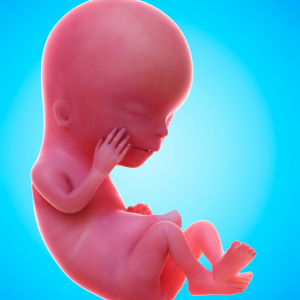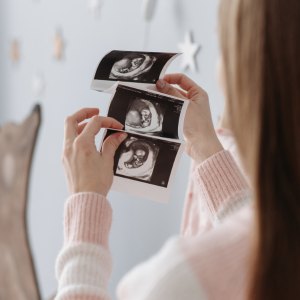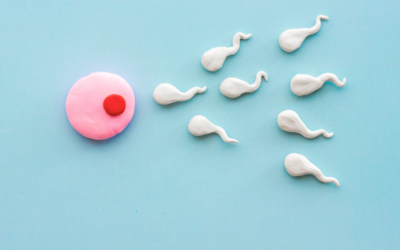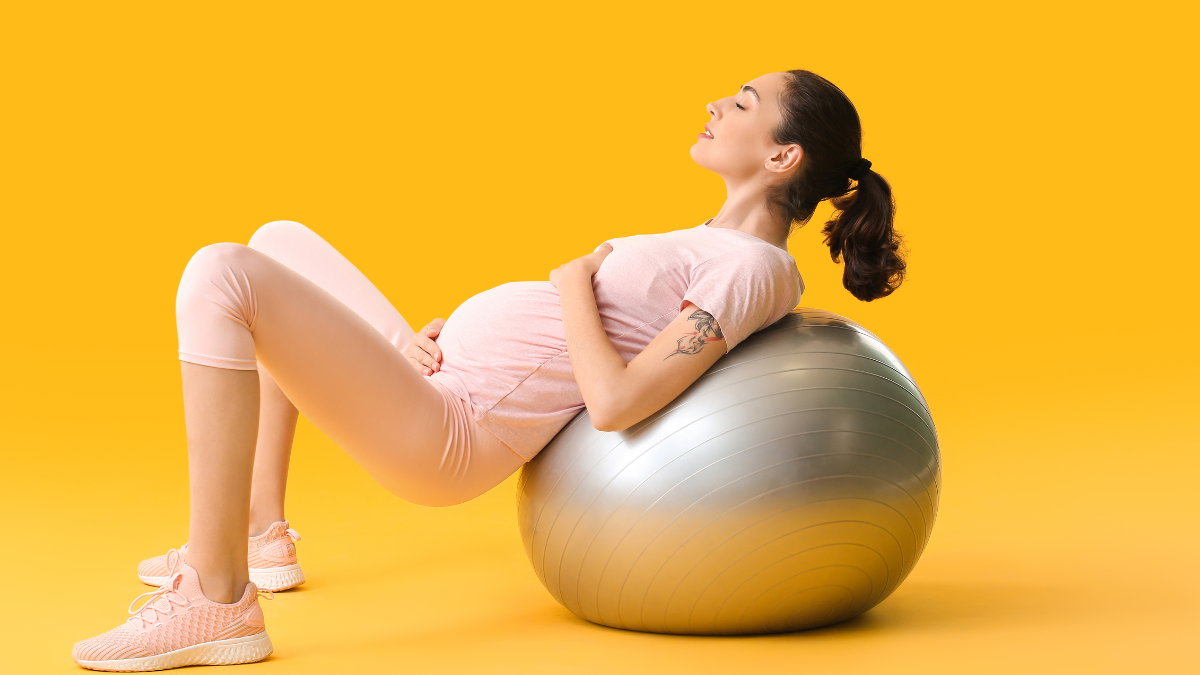Reaching 18 weeks pregnant is a significant milestone in your pregnancy journey. Around this time, your baby is growing rapidly, and many exciting developments are taking place inside your womb. You might start feeling early movements, notice changes in your body, or experience new symptoms as your uterus expands and your baby becomes more active. Understanding these changes can help you recognize what’s normal, stay comfortable, and feel more connected to your little one.
This stage is also crucial for your baby’s development. Key organs and systems, including the ears, bones, and muscles, are maturing, and your baby is starting to respond to sounds and movements. In this detailed guide, we’ll explore baby growth at 18 weeks, common symptoms you may experience, tips for nutrition and exercise, and answers to frequently asked questions. Whether it’s your first pregnancy or not, this guide will provide the insights you need to navigate this exciting stage with confidence.
Table of Contents
How Big is Your Baby at 18 Weeks Pregnant?
At 18 weeks pregnant, your baby is roughly the size of a bell pepper or a sweet potato, measuring about 5.5 inches long and weighing approximately 7 ounces.
Key Baby Developments at 18 Weeks:
- Hearing abilities: The inner ear and auditory nerves are forming. Your baby may start reacting to sounds from your environment, including your voice.
- Facial expressions: Tiny muscles allow your baby to make expressions like frowning, squinting, and even smiling.
- Bone development: The skeleton is slowly hardening from soft cartilage into bone, preparing for the rest of growth.
- Digestive system progress: Swallowing amniotic fluid helps the intestines develop, and meconium (baby’s first stool) begins forming.
- Movement coordination: Limbs are growing stronger, and your baby’s movements are becoming smoother.

Symptoms You May Experience at 18 Weeks Pregnant
Every pregnancy is unique, but certain symptoms are common at 18 weeks pregnant. Understanding them can help you differentiate normal pregnancy experiences from signs of concern.
- Early fetal movements: Known as “quickening,” these flutters or tiny taps may be felt in the lower belly. First-time moms may notice them later than women who have been pregnant before.
- Back pain: As your uterus grows, it shifts your posture and stretches ligaments, causing mild to moderate backaches.
- Round ligament pain: Sharp twinges in your lower abdomen are normal as ligaments stretch to support the uterus.
- Increased appetite: Your body needs more calories to support fetal growth.
- Braxton Hicks contractions: Irregular, mild uterine tightening may be noticeable.
- Skin changes: Stretch marks or darker lines (linea nigra) may appear as the belly expands.
- Nasal congestion: Higher blood volume can cause stuffiness or mild nosebleeds.
Can You Feel Your Baby at 18 Weeks Pregnant?
Many women begin to feel subtle movements around 18 weeks, especially in their second pregnancy. These early movements may feel like:
- Fluttering
- Gentle taps
- Bubbles or gas-like sensations
If you don’t feel movement yet, don’t worry—it’s normal, especially for first-time pregnancies. Movements typically become more noticeable over the next few weeks.
Baby Development Insights at 18 Weeks Pregnant
Understanding what your baby is doing inside your womb can be fascinating:
- Sensory development: Baby’s ears are maturing, so talking, singing, or playing soft music can stimulate their auditory senses.
- Muscle and bone strengthening: Tiny kicks and stretches help develop muscles and bones.
- Facial growth: Eyebrows, eyelashes, and hair on the head may start appearing.
Health Tips for 18 Weeks Pregnant
Your body is supporting rapid baby growth, so staying healthy is essential.
Nutrition:
- Eat leafy greens, lean proteins, whole grains, and fruits.
- Drink plenty of water to stay hydrated.
- Continue prenatal vitamins for folic acid, iron, and calcium.
Exercise:
- Gentle prenatal exercises such as yoga, swimming, or walking improve circulation, reduce swelling, and strengthen muscles.
Sleep:
- Avoid sleeping on your back; side-sleeping, particularly on the left side, improves blood flow to your baby.
Monitoring:
- Begin noticing baby movements to establish patterns.
- Track weight gain and any unusual symptoms to discuss with your healthcare provider.
Ultrasound and Check-Ups at 18 Weeks
Doctors often schedule a mid-pregnancy ultrasound between 18-20 weeks to check:
- Baby’s growth and organ development
- Placenta location
- Amniotic fluid levels
- Possible determination of the baby’s gender

Preparing for the Second Half of Pregnancy
At 18 weeks pregnant, you are nearly halfway through your pregnancy. Consider:
- Planning prenatal classes
- Preparing a nursery
- Thinking about birth plans
- Choosing comfortable maternity clothing
Key Takeaways for 18 Weeks Pregnant
- Your baby is growing rapidly, and movements may start to be noticeable.
- Hearing and facial muscles are developing.
- Common symptoms include back pain, round ligament twinges, and increased appetite.
- Proper nutrition, hydration, exercise, and sleep are essential.
- Ultrasound scans can provide valuable insights into baby development.
Being 18 weeks pregnant is a time of exciting growth, bonding, and discovery. Staying informed and taking care of your body ensures both you and your baby stay healthy and happy during this stage.
Is 18 Weeks Considered 5 Months Pregnant?
Yes, 18 weeks pregnant is generally considered about 4 and a half months, though pregnancy is usually measured in weeks rather than months because it’s more precise.
Here’s a breakdown:
- A typical pregnancy lasts about 40 weeks.
- Each month is roughly 4.3 weeks (since most months are slightly longer than 4 weeks).
- By 18 weeks, you are in your fifth month, but not fully 5 months yet. You’re in the middle of the fifth month of pregnancy.
So, it’s accurate to say you’re “about 5 months pregnant,” but technically, you haven’t completed 5 full months.
What Should I Be Feeling at 18 Weeks Pregnant?
At 18 weeks pregnant, your body is going through many changes, and you may notice new sensations as your baby grows. While every pregnancy is unique, here are the most common things you might be feeling:
1. Early Baby Movements
You may start feeling tiny flutters, taps, or bubbles in your lower abdomen. These are called “quickening” and usually become more noticeable over the next few weeks.
2. Back and Hip Discomfort
As your uterus expands, it shifts your posture and puts extra strain on your back, hips, and pelvis, leading to mild aches or soreness.
3. Round Ligament Pain
Sharp twinges or brief stabbing pains on either side of your lower belly are normal. These occur as ligaments stretch to support your growing uterus.
4. Increased Appetite
Your metabolism is working harder to nourish your baby, so you may feel hungrier than usual. Eating frequent, balanced meals can help maintain energy levels.
5. Braxton Hicks Contractions
Some women notice mild, irregular tightening of the uterus, known as Braxton Hicks contractions. These are generally painless and short-lived.
6. Skin and Hair Changes
You may see stretch marks, darkening of the linea nigra, or changes in hair texture and growth due to pregnancy hormones.
7. Emotional Fluctuations
Hormonal shifts can cause mood swings, heightened emotions, or increased sensitivity. Practicing self-care and talking with loved ones can help manage these changes.
Understanding what’s typical at 18 weeks pregnant can help you feel more confident and recognize any unusual symptoms early. Always contact your healthcare provider if you experience severe pain, heavy bleeding, or unusual discharge.
Is My Baby Fully Formed at 18 Weeks Pregnant?
At 18 weeks pregnant, your baby is growing rapidly, but they are not yet fully formed. While many major organs and body structures are in place, development continues in important ways throughout the second and third trimesters.
What Is Developed by 18 Weeks?
- Skeleton and muscles: Bones are hardening from cartilage, and muscles are becoming stronger.
- Facial features: Eyebrows, eyelashes, and fine hair on the head begin to appear.
- Organs: Heart, kidneys, liver, and brain are functioning but continue to mature.
- Sensory development: Ears are developing, and your baby may start responding to sounds.
What Still Needs to Develop
- Lungs: The respiratory system is not fully ready; your baby won’t breathe air until birth.
- Immune system: Continues to develop over the coming months.
- Fat accumulation: Your baby is still very lean; fat layers will form later to regulate body temperature.
- Refined motor skills: Movements will become stronger and more coordinated as the nervous system matures.
What Should I Avoid in Week 18 of Pregnancy?
At 18 weeks pregnant, your body and your baby are still developing rapidly, so it’s important to avoid certain foods, activities, and habits that could pose risks. Staying mindful helps protect both your health and your baby’s development.
1. Certain Foods
- Raw or undercooked meat and eggs: Risk of foodborne illnesses like Salmonella or Listeria.
- Unpasteurized dairy products: Can contain harmful bacteria.
- High-mercury fish: Swordfish, king mackerel, and shark should be avoided.
- Excess caffeine: Limit to 200 mg per day (about one 12-ounce cup of coffee).
- Processed or junk foods: High in sugar and unhealthy fats, which can lead to excessive weight gain.
2. Harmful Substances
- Alcohol: Can cause fetal alcohol spectrum disorders.
- Tobacco and recreational drugs: Increase risks of preterm birth, low birth weight, and developmental problems.
- Certain medications: Always check with your healthcare provider before taking prescription or over-the-counter medicines.
3. Strenuous Activities
- Heavy lifting: Avoid lifting weights that strain your back or abdomen.
- High-impact exercise or contact sports: Can increase the risk of injury.
- Hot tubs or saunas: Overheating can be dangerous for your baby.
4. Environmental Hazards
- Exposure to toxic chemicals, Such as pesticides, paint fumes, or strong cleaning agents.
- Excessive stress: Practice relaxation techniques like prenatal yoga, meditation, or gentle walking.
Being mindful of these precautions at 18 weeks pregnant helps support healthy fetal development and reduces the risk of complications. When in doubt, always consult your healthcare provider before making changes to your diet, exercise routine, or daily habits.

Can You Feel Actual Kicks at 18 Weeks Pregnant?
At 18 weeks pregnant, many women begin to feel their baby’s movements, but it may not always feel like a clear “kick” just yet. These first movements are often described as flutters, bubbles, or gentle taps in the lower abdomen. This stage is commonly called “quickening.”
What Early Movements Feel Like
- Flutters: Light, butterfly-like sensations.
- Taps or nudges: Gentle pokes that may feel like a tiny touch from inside.
- Bubbles or rolling sensations: Often mistaken for gas or digestion at first.
Factors Affecting When You Feel Kicks
- First-time moms: May notice movements slightly later, around 18–22 weeks.
- Experienced moms often feel movements earlier, sometimes as early as 16 weeks.
- Placenta position: If the placenta is located at the front of the uterus (anterior placenta), it may cushion the sensation of kicks.
By the end of 18 weeks, these flutters may become more regular and recognizable as your baby grows stronger. Within a few weeks, these movements will become more distinct and frequent, eventually feeling like true kicks, rolls, or stretches.
When Can a Baby Hear Dad in the Womb?
By 18 weeks pregnant, your baby’s ears are developing, and the auditory system is starting to function, though it isn’t fully mature yet. Around this time, babies can begin to perceive sounds from outside the womb, including voices, music, and environmental noises.
How a Baby Hears in the Womb
- Early development: The inner ear and auditory nerves start forming around 18 weeks.
- Sound perception: At this stage, low-frequency sounds, like your partner’s voice, can pass through the amniotic fluid and be detected by the baby.
- Bonding opportunity: Babies may respond with increased movement or changes in heart rate when they hear familiar voices.
Best Ways to Let Dad Connect
- Talk or sing: Encourage dad to speak, read, or sing to the baby daily.
- Gentle belly rubs: Some babies respond to combined voice and touch.
- Play music together: Babies may start recognizing rhythms and tones, forming early auditory memories.
By the 20th week, most babies can reliably hear voices, so consistent interaction from dad can help strengthen bonding before birth.
Can My Baby Feel My Hand on My Belly at 18 Weeks Pregnant?
At 18 weeks pregnant, your baby’s nervous system and sense of touch are still developing, so they may not fully “feel” your hand yet in the way we imagine. However, your gentle touch on your belly can provide stimuli that your baby may eventually respond to.
How Touch Develops in the Womb
- Early reflexes: By 18 weeks, your baby can make small movements, stretch, and respond to pressure or changes in the uterine environment.
- Sensitivity: The skin and nerve endings are forming, and some studies suggest babies can react to pressure or vibrations from the outside.
- Movement response: Lightly pressing or rubbing your belly may prompt your baby to move, though it’s not the same as conscious “feeling.”
Bonding Benefits
Even if your baby doesn’t fully sense your touch yet, rubbing or talking to your belly helps you bond and can provide gentle stimulation that encourages movement and development.
By the 20th week, babies generally start responding more noticeably to touch, sound, and gentle pressure, making these early interactions a meaningful part of pregnancy.
How to Know if a Baby Has Died in the Womb at 18 Weeks Pregnant
The thought of a baby dying in the womb is frightening, but it’s important to know the signs of potential complications and when to seek medical help. Most pregnancies progress normally, but if you notice unusual symptoms, contact your healthcare provider immediately.
Possible Warning Signs
At 18 weeks pregnant, signs that something may be wrong include:
- No fetal movement: If you previously felt movements and they suddenly stop, it may be concerning.
- Vaginal bleeding or spotting: Heavy bleeding, clots, or persistent spotting should always be checked.
- Severe abdominal pain or cramping: Intense or persistent pain can indicate complications.
- Fluid leakage: Sudden gush of fluid or loss of amniotic fluid.
- Unusual discharge or fever: Can indicate infection.
Important Notes
- At 18 weeks, many women may not yet feel regular fetal movements, so the absence of movement alone isn’t always a sign of a problem.
- Ultrasound confirmation is the only reliable way to determine fetal health or loss.
- Don’t hesitate to contact your doctor or midwife if you notice any worrying symptoms—they can perform an ultrasound or other tests to ensure everything is okay.
While it’s natural to worry, remember that complications are relatively rare, and most pregnancies at 18 weeks progress safely. Early medical attention is key if anything unusual occurs.
Conclusion
Reaching 18 weeks pregnant is an exciting milestone filled with growth, new sensations, and bonding opportunities. Your baby is developing rapidly, with forming bones, muscles, and sensory abilities, while you may start noticing early movements and physical changes. Understanding what’s happening at this stage—from symptoms and diet to safe activities and warning signs—helps you navigate pregnancy with confidence and care.
Remember to prioritize nutrition, hydration, rest, and gentle exercise, and maintain regular check-ups with your healthcare provider. Listening to your body, monitoring baby movements, and staying informed ensures a healthier, more comfortable pregnancy. Embrace this stage, connect with your baby, and enjoy the incredible journey of nurturing a new life at 18 weeks pregnant.







